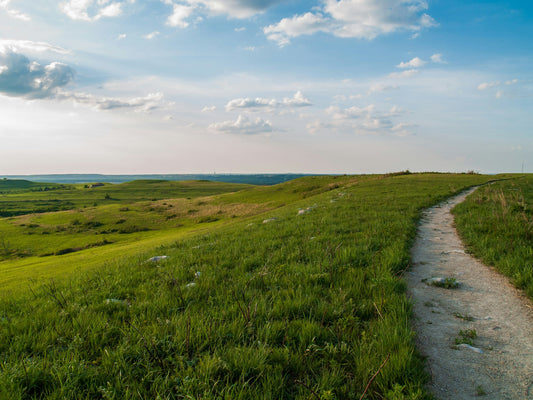Tips for Falling Asleep Quicker and Easier
If you're having trouble falling asleep at night, you're not alone. Many people struggle with getting a good night's rest, and the consequences can be serious. Lack of sleep can lead to a range of health problems, including weight gain, reduced immunity, and even an increased risk of heart disease. Fortunately, there are several simple strategies you can use to fall asleep quicker and easier. Here are some of the best ways to get a better night's sleep:
- Stick to a regular sleep schedule. Going to bed and waking up at the same time each day can help regulate your body's internal clock, making it easier to fall asleep at night.
- Create a sleep-friendly environment. Your bedroom should be cool, dark, and quiet, with a comfortable mattress and pillows. Avoid using electronic devices in bed, as the blue light emitted by screens can interfere with your body's production of melatonin, a hormone that helps regulate your sleep-wake cycle.
- Relax before bedtime. Try to wind down and relax in the hour or so before you go to bed. Take a warm bath, listen to calming music, or try some deep breathing or meditation.
- Avoid caffeine, alcohol, and heavy meals before bedtime. Caffeine and alcohol are both stimulants, and can interfere with your ability to fall asleep. Heavy meals can also disrupt your sleep, so it's best to eat a light snack or meal a few hours before bedtime.
- Exercise regularly. Regular physical activity can help you fall asleep more quickly and improve the quality of your sleep. Just be sure to finish your workout a few hours before bedtime, as exercising too close to bedtime can actually make it harder to fall asleep.
By following these simple tips, you can improve your sleep and get the rest you need to be your best. Sweet dreams!
How important is a regular sleep schedule for your health?
A regular sleep schedule is very important for your overall health and well-being. Getting enough quality sleep is essential for maintaining physical health, mental clarity, and emotional well-being. A regular sleep schedule can help regulate your body's internal clock, so you feel sleepy at bedtime and awake during the day. This can make it easier to fall asleep at night and improve the quality of your sleep.
In addition to making it easier to fall asleep, a regular sleep schedule can also provide other health benefits. Adequate sleep is important for maintaining a healthy immune system, regulating your mood and emotions, and supporting healthy brain function. Lack of sleep has been linked to a range of health problems, including weight gain, diabetes, and even an increased risk of heart disease.
Overall, establishing a regular sleep schedule and sticking to it is an essential part of maintaining good health and well-being. It can help improve your sleep quality, regulate your mood and emotions, and support your overall health and well-being.
Do caffeine and alcohol affect your sleep?
Yes, caffeine and alcohol can both affect your ability to sleep. Caffeine is a stimulant that can interfere with your body's production of melatonin, a hormone that helps regulate your sleep-wake cycle. As a result, caffeine can make it harder to fall asleep and can cause you to wake up more frequently during the night.
Alcohol is a sedative, and can make you feel drowsy and sleepy. However, drinking alcohol before bed can actually disrupt your sleep and make it harder to get a good night's rest. Alcohol can cause you to wake up more frequently during the night, and can reduce the amount of time you spend in deep, restorative sleep.
In general, it's best to avoid caffeine and alcohol in the hours leading up to bedtime, as they can both interfere with your ability to get a good night's sleep. If you do consume caffeine or alcohol, it's best to do so in moderation, and to limit your intake to earlier in the day. This will help ensure that you get the quality sleep you need to feel your best.
Does blue light affect your sleep?
Yes, blue light can affect your ability to sleep. The blue light emitted by screens on electronic devices such as smartphones, tablets, and laptops can interfere with your body's production of melatonin, a hormone that helps regulate your sleep-wake cycle. As a result, exposure to blue light at night can make it harder to fall asleep and can disrupt your sleep.
During the day, the blue light emitted by the sun can help boost your mood and energy levels. But at night, when your body is preparing for sleep, the blue light from screens can have the opposite effect. It can suppress your body's production of melatonin, making it harder to fall asleep and stay asleep.
To avoid the effects of blue light on your sleep, it's best to avoid using electronic devices in the hour or so before bedtime. If you must use a device at night, consider using a blue light filter or adjusting the settings on your device to reduce the amount of blue light it emits. This can help protect your sleep and ensure that you get the rest you need to feel your best.
How does diet affect sleep?
When it comes to getting a good night's sleep, many people overlook the role that diet plays. However, the food and drinks we consume can have a significant impact on the quality of our sleep. In this blog post, we'll take a closer look at how diet affects sleep and what you can do to improve your sleep through your diet.
First, it's important to understand that the body's sleep-wake cycle, or circadian rhythm, is regulated by several factors, including the release of certain hormones, such as melatonin. Melatonin is a hormone that is produced by the pineal gland in the brain and helps to regulate the body's sleep-wake cycle. When it's dark, the pineal gland produces more melatonin, which makes us feel sleepy.
One way that diet can affect sleep is by impacting the production of melatonin. Consuming certain foods and drinks can either increase or decrease the amount of melatonin in the body, which can affect the quality of our sleep. For example, eating a large meal close to bedtime can make it harder to fall asleep because it can take longer for the body to digest the food. This can lead to an increase in body temperature and an overall feeling of discomfort, which can make it difficult to fall asleep.
On the other hand, consuming certain foods and drinks that are high in tryptophan, an amino acid that is converted into melatonin in the body, can help to promote sleep. Foods that are high in tryptophan include turkey, milk, eggs, and nuts. Consuming these foods in the evening can help to increase the levels of melatonin in the body, making it easier to fall asleep.
In addition to affecting the production of melatonin, diet can also impact sleep by causing disruptions in blood sugar levels. Consuming sugary foods and drinks can cause blood sugar levels to spike, which can lead to an increase in energy and alertness. This can make it difficult to fall asleep and can lead to restless sleep. On the other hand, consuming complex carbohydrates, such as whole grains, can help to stabilize blood sugar levels and promote a deeper, more restful sleep.
Another way that diet can affect sleep is through the consumption of caffeine. Caffeine is a stimulant that can interfere with the body's sleep-wake cycle by blocking the effects of melatonin. Consuming caffeine, particularly in the late afternoon and evening, can make it harder to fall asleep and can lead to restless sleep. It's important to limit caffeine intake, especially close to bedtime, to help promote a better night's sleep.
What foods are high in tryptophan?
Tryptophan is an amino acid that is found in a variety of foods, including meat, dairy products, nuts, and seeds. Some examples of foods that are high in tryptophan include turkey, chicken, milk, yogurt, cheese, eggs, almonds, cashews, and sunflower seeds. Consuming these foods can help to increase the levels of tryptophan in the body, which can promote sleep. It's important to note, however, that the body also needs other nutrients, such as carbohydrates, to properly convert tryptophan into melatonin. Consuming tryptophan-rich foods along with complex carbohydrates can help to optimize the production of melatonin and promote a better night's sleep.









